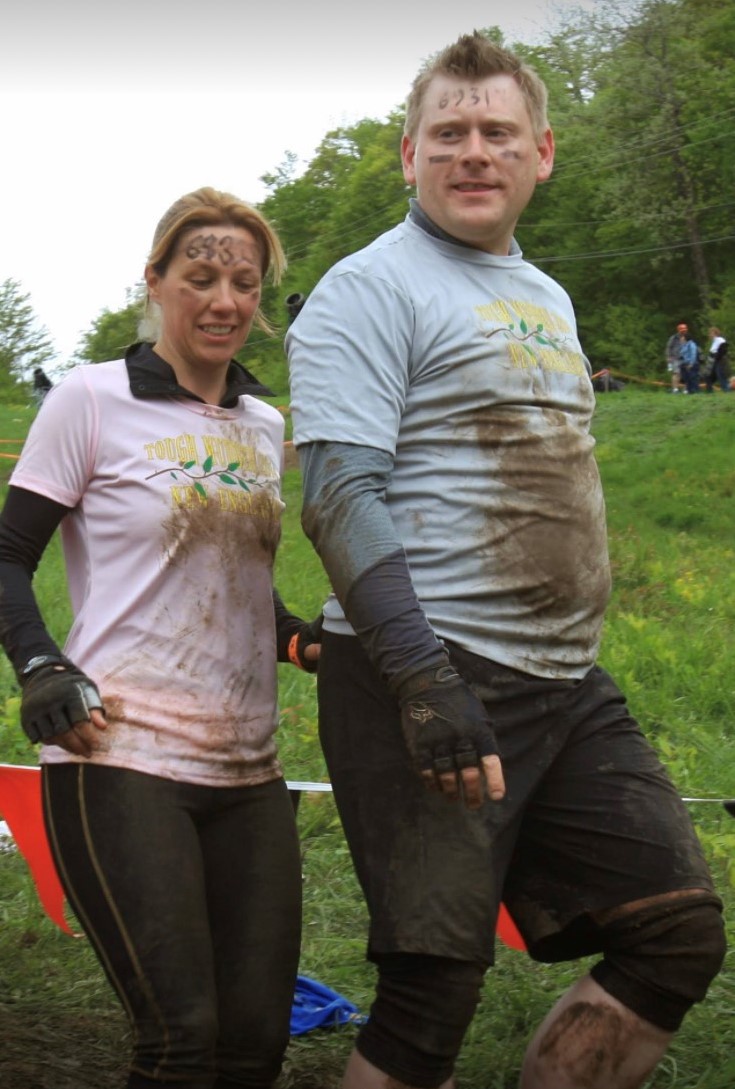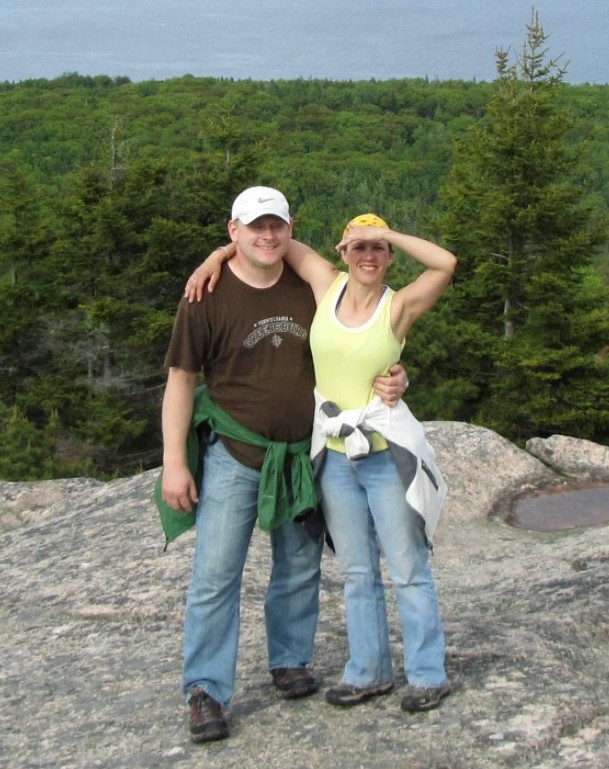
Subscribe here to receive new editions of ‘Field Notes’ directly so you never miss an update!
by: Craig Koscielski, Meat Programs Supervisor
Throughout my previous career as a chef and restaurant worker, I often pondered what my life would be like if I hung up the ole’ apron and chef coat. Years of kitchen work had been taxing, and as I juggled my passion for cooking with the challenges of the restaurant lifestyle, I decided to move on to the next phase and pursue what I called at that time a “real job” career path. I frequently wondered whether working in kitchens and cooking had prepared me well for the next phase of my career; turns out it had…

Toward the end of 2008, while living in Massachusetts, my girlfriend (now wife) announced that she was offered employment in Vermont and planned to seize the opportunity. It turns out that her opportunity was mine as well!
Once in Vermont, I hastily took the first restaurant job I could find: kitchen manager in a family-style chain restaurant, which was a distinctly different track for me. “At least it got me to Vermont”, I thought. After temporarily residing in Cornish, New Hampshire, we purchased a home in Springfield, VT in May 2009.
My new job required my attention for 70+ hours per week, with some weekend work necessary just to keep up. I had Sundays and Mondays off, which meant I got to see my wife 1 full day per week if I was lucky. After 6 months, I was faced with the possibility of losing one more of “my” days when my employer announced we would be adding a Sunday Brunch menu to the offerings. Yep, it was officially time to make a change!

I came across the Vermont Agency of Agriculture’s Food Safety Specialist position on the Vermont employment website while querying for jobs containing the word “food”. Food and Safety were two words near and dear to me so I completed the online application, dusted off my resume, and hit “send”. After reviewing the benefits and perks of working in state government, I was reluctant to leave my fate in the hands of electronic communication and contacted the hiring manager by phone. I ended up speaking with the (at that time) Meat Inspection Section Chief, Randy Quenneville.
Randy drilled down to one key question pretty quickly: “Do you have any experience with slaughter or meat processing?” I had zero slaughter experience but had cut, ground, and cooked pig, sheep and quartered beef carcasses in the restaurants. Next question: “Do you have familiarity with HACCP or implementing food safety controls?” Nope, no HACCP training, but I understood basic food safety concepts like maintaining temperature and handling to avoid cross contamination, and I had passed Serve Safe training courses, and I was willing to learn the rest!

The wheels of government turn slowly. It was close to 2 months before I received notice that I had been selected for an interview. That is a good number of Sunday brunches! After two interviews, including one comprising several slaughter and processing plant visits to make sure I was OK working in that environment, I was offered the job as Food Safety Specialist in March of 2010 and started my first day with the Agency’s Meat Inspection Program on the 29th.

Training for even the most exciting jobs begins with the basics, and a lot of reading! My version of basic training had me sitting in dress slacks, a button-up shirt and a tie at a cubicle just outside of the Agency’s meat inspection office in Montpelier. Packed-lunch in tow, I did my best to look the part. I was given a stack of old inspection manuals, animal disease textbooks, and federal training binders and was told to read them through while I awaited my formal USDA FSIS training. Randy explained that I would be expected to work from 7:45 to 4:30 each day with a 45 minute lunch break and reviewed the personnel policies and other “rules of the road” with me. Everything seemed so official. I had finally made it!
To give a little context on how life-changing this all was for me…
Restaurant industry work is unforgiving and does not always prioritize a sustainable work-life balance. For me, a 50-60 hour work week was the norm with one week of leave after one year of employment. Enrollment in the company’s health care plan was not a given, and dental insurance definitely was not a thing. Single-digit leave balances covered vacation, sick, and emergent leave. Taking a vacation any time the restaurant was “busy” was discouraged so that net was cast over every holiday and weekend.
So here I was, in the ole 9-5'er with permission to have a life outside of work and the time to actually do it. What a feeling! My first requests for leave time were full of appreciation and peppered with “if it is ok with you” type language. I really meant it, too! It felt like at any moment, things could go south, and I would become “that guy” - the slacker who needs too much time off. I eventually let my guard down and learned that in my new “real job”, work-life balance is a normal thing, and I didn’t need to fear living my life in order to earn a living. I could do both...

So yes, I love the benefits, but what about the work? It takes a special interest and fortitude to work in the slaughter and processing industry. For me, it has been an up close and personal way to learn “where your food comes from”, which was catching fire when I was hired.
The Food Safety world was much bigger than I had imagined, and the learning curve felt steep at times. Learning and retaining information about regulatory frameworks, animal anatomy and pre- and post- mortem inspection procedures, sanitary dressing, zero-tolerance inspection, government acronyms and other job requirements was a fascinating and eye opening experience. I didn’t realize there was this level of focus and so many protective steps that go into getting meat and poultry to your dinner tables.

Throughout my training, I had an abundance of support from my peers and my supervisor. If I wasn’t doing well in a particular area, my supervisor helped me to improve, learn new skills, and remain engaged in the process. When I sought peer guidance, somebody always answered my questions or provided me with the tools I needed to find my own way. I really can’t say enough how much I appreciated feeling supported through this transition.
Being on your own for the first time in a slaughter plant as a new inspector can be intimidating. Here you are - the newly trained food safety expert charged with verifying the plant’s food safety system – and the training wheels come off very quickly! At least that is how I felt. My Food Safety Specialist title meant that the public and the plants’ owners, managers and employees viewed me as a food safety expert. Living up to this title is what compelled me to keep learning then, and still does now.

Food safety specialists have a big responsibility protecting Vermont's food supply!
Regulators like me are also sometimes faced with challenging situations and need to know that our management “has our backs”. The Agency of Agriculture’s management had my back in the early years, and still does now. Challenges that arise are handled fairly and efficiently, and ensuring food safety, employee well-being, and industry satisfaction factor prominently in the State’s conflict resolution efforts.
As I have grown more knowledgeable and become more confident in my role as an inspector, I have also gained more confidence collaborating with my peers and supervisors, now in a new role. While I remain a student focused on understanding processes and performing my daily duties in Vermont’s slaughter and processing plants, I also am now a teacher. I supervise other food safety specialists and have the opportunity to contribute in a positive way to their professional development. I also focus on process improvements for the entire meat inspection section and implement strategies that allow all of us to do our jobs, and serve you, in the best way possible.

Craig and his wife enjoying that work-life balance!
Eleven years later, and I am still with my State Meat Inspection Team, still learning and still appreciating the support that my co-workers and my superiors offer. I won’t lie - the total benefits package that the State offers is still nice, too. My employment with the State of Vermont was my first “real job”, but the bar has been set so high, I am not sure if I ever would want to look for a second one!

Same enjoyment; different scenery!
All uncaptioned images in this article sourced from iStock photos.
Subscribe here to receive new editions of ‘Field Notes’ directly so you never miss an update!

